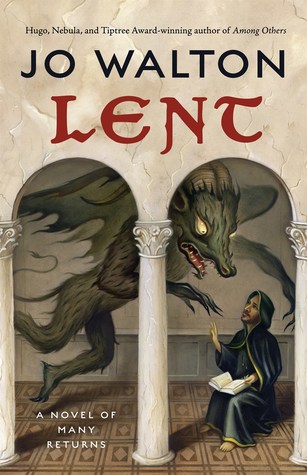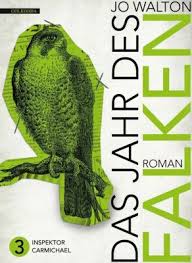There are still sixteen Trollope novels I haven’t read yet, which is a very cheering thought. They aren’t in the library and they aren’t in print, but they exist and are out there and will turn up one day, along with the ones I’ve read from the library and don’t own. Even when I’ve read all sixteen of them, I’ll still have the comfort of re-reading the lot of them for the rest of my life.
I’ve just re-read The Warden. I first read it a little over a year ago. It’s the first Trollope I’ve re-read, as it was the first I read.
The thing is that I got put off Victorian literature by my childhood, in which I read a great deal of it because it was what we had. I didn’t just read improving children’s novels like What Katy Did and Elsie Dinsmore, I read the Bronte sisters, most of Dickens all most of Hardy. Indeed, I read quite a bit of Dickens and Hardy aloud to my grandmother — David Copperfield and Under the Greenwood Tree and Barbara Cartland and Wordsworth is not what I’d want read to me if I were dying, but it isn’t a situation where you want to argue about taste. I’ve always hated Hardy’s novels — though I like his poetry a great deal — but I’d have happily read my way through the whole shelf of them out loud if it had kept my grandmother alive to hear them.
In any case, when I discovered the twentieth century, and SF, and historical novels, I didn’t go back to older prose for ages. I’ve still read no more George Eliot than Silas Marner, and I didn’t read any Austen except the school set-text of Pride and Prejudice until 1997. (Ah, but in 1997 there they all were waiting for me and I could read her collected works in one week.)
I lumped Trollope with Dickens, and ignored him for years.
The Warden isn’t really a very good book. He didn’t have complete command over his voice yet, he didn’t have the sure touch he developed later. It’s not a first novel, quite, but it has a lot of first novel problems. (He’d written three novels about Ireland, none of which I’ve read, and which I probably don’t want to read, because I found Castle Richmond almost too much for me.) Re-reading it with a critical comparison to his later work, the wonder is that I went on from this to read more.
The reason I started reading Trollope was because of the Young Trollope’s website. ( http:///www.endicottstudio.com/yt.html
On the website, it says lots of things about Trollope being a master of characterisation — which is true, by the way — and then it says “the main characters of one novel may appear at the dinner party of another, commenting on the action.”
I wanted that, and it was apparent to even the meanest understanding that I’d need to read more than one novel to get it.
Oddly, by the time I got it, I found it more irritating than anything. The way he does it in The Eustace Diamonds is positively intrusive, it would be a better book without. Yes, I got excited when I saw Phineas berating the heroine’s father in He Knew He Was Right, and I like it that the respectable firm of solicitors Bideawhile and Slow turn up so regularly, and I like the way he starts something as a joke and then thinks about it and makes it three dimensional — like the whole personality of the older Duke of Omnium. But the “What they said at Matchings” chapters of the characters of Can You Forgive Her? and Phineas Finn gossiping about the characters of The Eustace Diamonds seemed to me to be a mistake.
However, my imagination of how this would work was quite different, and to get what I imagined it would be like I was prepared to read my way through vast quantities of stuff like The Warden. Fortunately, I didn’t need to, because by Barchester Towers he had control of the omniscient voice and I had fallen in love. (I don’t recall now quite why I wanted this dinner-party bit so much, though it was only a year ago. But I’m very glad I did.)
I think Dickens ruined the omniscient voice, at least, almost everyone who has used it since has used either his version, which I call “bestseller omniscient” or fairy tale omniscient. “Bestseller omni” is like a series of tight thirds, skipping where appropriate, and without any actual omniscience in there at all. It uses any passing heads, it’ll use a desk clerk to look at the hero checking into the hotel and then forget him forever. It worked brilliantly for Dickens, who was a caricaturist more than anything, and his heirs are Michael Crighton and Frederick Forsyth and their ilk.
Trollope’s omniscient is a descendant of Austen’s, and a clearly evolved descendant. He does it so seemingly effortlessly, and with such incredibly precise control. It’s almost post-modern, it itself comments on the action of the story, it directs attention and emotion, it pulls back and steps forward, and best of all it’s funny. It really makes me laugh, over and over again, with the lightest of touches. Most of what is written to be funny leaves me cold and slightly embarrassed, from Discworld to Woodhouse. I laugh at Zorinth trying to raise his eyebrow and succeeding in contorting his face. I laughed at the brother-in-bed bit of L’Auberge Espagnol and i laugh at Trollope’s little asides. I’ve probably laughed more at Trollope than at everything else in the last year put together. (And of course, seeing it done like that, I naturally wanted to do it just like that too, and pastiched the style lock stock and gentle reader for my dragon book.)
The Warden seems a very slight thing on re-reading, with only glimpses of what is to come, and it’s not at all where I’d recommend someone else starts. All the same I am so glad I found it and persevered.



